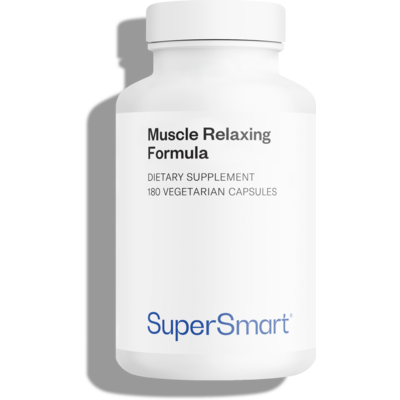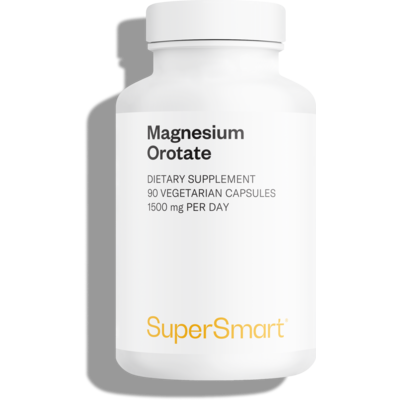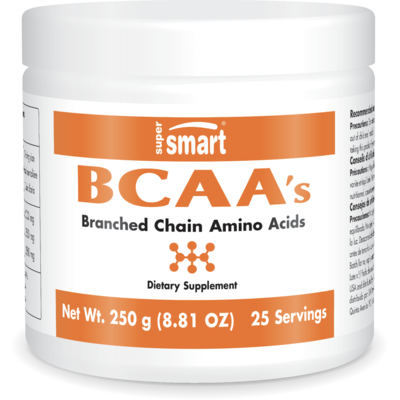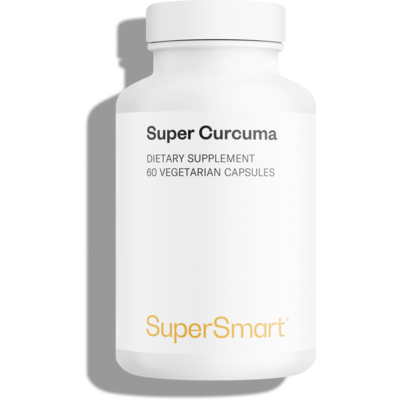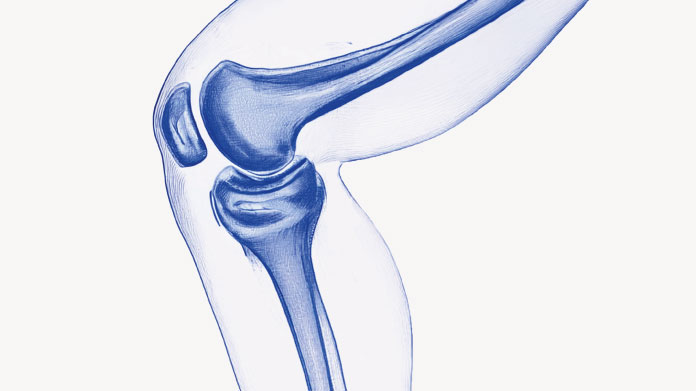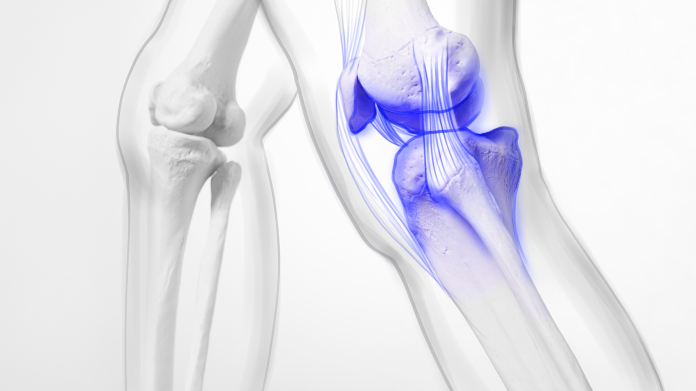What should you take for sore muscles?
Have you pushed yourself a bit too hard during your workout and are now suffering from sore muscles? Don’t worry, it’s nothing serious and can be easily fixed. Just follow these few pointers!
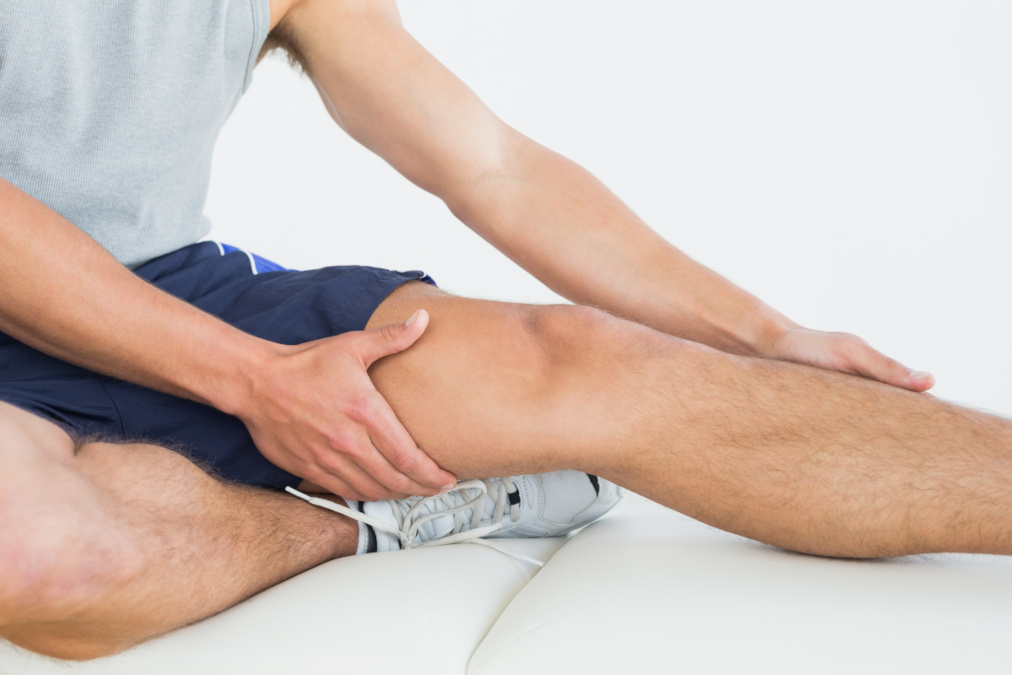
What exactly is muscle soreness?
Muscle soreness is pain that comes on after intensive or unfamiliar physical exertion usually following an exercise session.
These aches and pains are caused by micro-tears in muscle fibres, which allow in interstitial fluid. This gets inside the muscle, triggering edema, and an inflammatory response intended to eliminate the damaged muscle fibres and repair the area.
Sore muscles generally develop 24-48 hours after exercise, and can last several days. The most important thing is to rest to allow your limbs to fully recover.
Be careful not to confuse muscle soreness with two other kinds of muscle pain: cramp (a sudden, intense but temporary contraction) and contracture (persistent contraction of the muscles).
What can you do to relieve sore muscles?
Now we’ve established what causes muscle soreness, we can explore some genuinely effective remedies.
Prevention: the most effective solution?
Experts agree that the safest, most effective approach to muscle soreness is to take pre-emptive action.
For that, it’s crucial to practise your chosen sport or exercise at a level consistent with your abilities, by establishing a regular, progressive program.
And you should always avoid ending your workout abruptly, taking several minutes to cool down and actively recover.
3 tips to relieve muscle pain naturally
As well as rest, there are three natural techniques which have been shown to be effective at easing muscle soreness :
- massage improves blood flow, lowers inflammation, promotes muscle relaxation and reduces stiffness. It can therefore help speed up recovery from sore muscles;
- gentle stretching promotes blood flow in tense muscles and can thus relieve soreness (make sure the stretches are not too intense as this can make things worse) ;
- cryotherapy is also excellent for aches and pains. Though it might sound complex, it’s simply a matter of applying cold to the painful area: immersing your legs in cold water or applying ice, for example.
What you should take for sore muscles
Let’s now take a look at some active substances that can relieve muscle soreness.
What to drink for sore muscles
Water, plain and simple. Hydration maintains good blood flow and thus oxygenates muscle fibres. It also helps to remove toxins from the body, which may reduce inflammation. So drink plenty of water before, during and after exercising. Many athletes recommend drinking alkaline water in particular.
You can also drink relaxing or anti-inflammatory herbal teas (camomile, ginger, peppermint…)
Drugs for muscle pain
If the pain is severe, you can, of course, use medication to ease pain and discomfort: oral analgesics and anti-inflammatories (paracetamol, ibuprofen), topical analgesics in the form of creams or gels … However these drugs only treat the symptoms.
Sore muscles : natural treatments?
If you’ve ‘overdone it’ during your workout, or you often suffer from sore muscles, you can also turn to gentler, more natural substances :
- magnesium is recommended for muscle pain. This essential mineral supports healthy muscles and helps the muscles relax (1). Magnesium is found in whole grains, nuts, pulses … There are also supplements that offer a more bioavailable form of magnesium such as Magnesium Orotate ;
- citrulline is an amino acid recognized for providing natural support to the circulation and facilitating muscle recovery, which may help with sore muscles (2). Good food sources include vegetables from the cucurbitaceae family, such as cucumber, melon and pumpkin. You also have the option of taking a citrulline supplement;
- BCAAs such as leucine, isoleucine and valine, are branched-chain amino acids, plasma concentrations of which decrease following physical exertion. A number of studies suggest BCAAs are effective for muscle soreness (3) ;
- Turmeric, known for its anti-inflammatory and antioxidant effects (4), may also help ease inflammation caused by muscle soreness (try Super Curcuma or Natural Curcuma ) ;
- As mentioned earlier, in reference to herbal teas, some naturopaths recommend plants with relaxing properties for easing pain and inflammation, such as passiflora, lemon balm and camomile (5). The formulation Muscle Relaxing Formula contains extracts of these three plants, combined synergistically with magnesium and vitamin E
SuperSmart ADVICE
References
- Reno AM, Green M, Killen LG, O'Neal EK, Pritchett K, Hanson Z. Effects of Magnesium Supplementation on Muscle Soreness and Performance. J Strength Cond Res. 2022 Aug 1;36(8):2198-2203. doi: 10.1519/JSC.0000000000003827. Epub 2020 Oct 1. PMID: 33009349.
- Rhim H.C., Kim S.J., Park J., Jang K.M. Effect of citrulline on post-exercise rating of perceived exertion, muscle soreness, and blood lactate levels: A systematic review and meta-analysis. Sport Health Sci. 2020;9:553–561. doi: 10.1016/j.jshs.2020.02.003.
- Khemtong C, Kuo CH, Chen CY, Jaime SJ, Condello G. Does Branched-Chain Amino Acids (BCAAs) Supplementation Attenuate Muscle Damage Markers and Soreness after Resistance Exercise in Trained Males? A Meta-Analysis of Randomized Controlled Trials. Nutrients. 2021 May 31;13(6):1880. doi: 10.3390/nu13061880. PMID: 34072718; PMCID: PMC8230327.
- Hewlings SJ, Kalman DS. Curcumin: A Review of Its Effects on Human Health. Foods. 2017 Oct 22;6(10):92. doi: 10.3390/foods6100092. PMID: 29065496; PMCID: PMC5664031.
- Srivastava JK, Shankar E, Gupta S. Chamomile: A herbal medicine of the past with bright future. Mol Med Rep. 2010 Nov 1;3(6):895-901. doi: 10.3892/mmr.2010.377. PMID: 21132119; PMCID: PMC2995283.
Keywords
5 Days
Easy to navigate site
Easy to navigate site, had what I was searching for, good price. easy order-check out
James Tucker
11 Days
My skin is clearing up nicely!
Pretty good for my skin so far.
Christian
13 Days
The new packaging is excellent
The new packaging is excellent - finally! No more squashed boxes and torn envelopes.
GORAN
14 Days
Great Product
Great Product
Larry Garrett
18 Days
Quick shipping
Quick shipping; good price. No issues!
Mary McCarty
20 Days
Thr product is very good and is helping…
Thr product is very good and is helping me on my health. Then is always on time
LUGO Luz
22 Days
Buying was fine
Buying was fine. I had problems with the website not recognizing my login info, and had to call to get it fixed. Other than that, everything was good.
David S. Clark
22 Days
Your super maca and super ginseng are…phenomenal
Your super maca and super ginseng are phenomenal supplements that compliment each other when taking them together. Fantastic feeling of well-being and lots of mid day energy without the crash.
Keith Mason
25 Days
I have had amazing results with every…
I have had amazing results with every supplement I've purchased. I am extremely satisfied with this company
kirstin Torres
25 Days
Fine products
Fine products . They are on the leading edge of online supplements. The only issue -so far-is they sometime run out of subscription items.
Jason Argos
28 Days
The ordering process is very user…
The ordering process is very user friendly and the products always come in a timely manner.
CARTER Rhonda
29 Days
The price for Dr
The price for Dr. Pero's AC-11 is reasonable and in line with his views. (my former colleague). Keep it pure.
CAMPBELL Clayton
32 Days
Right on every time.
Right on every time.
Arthur Nicholas
35 Days
They are cheaper than everyone else and…
They are cheaper than everyone else and the shipping was fast. Great company.
Patricia Adams
41 Days
Availability of quality health…
Availability of quality health supplements and it's wide variety is impressive. Ordering is seamless and shipping even during the holidays is well streamlined.
Mohamad Hussein


